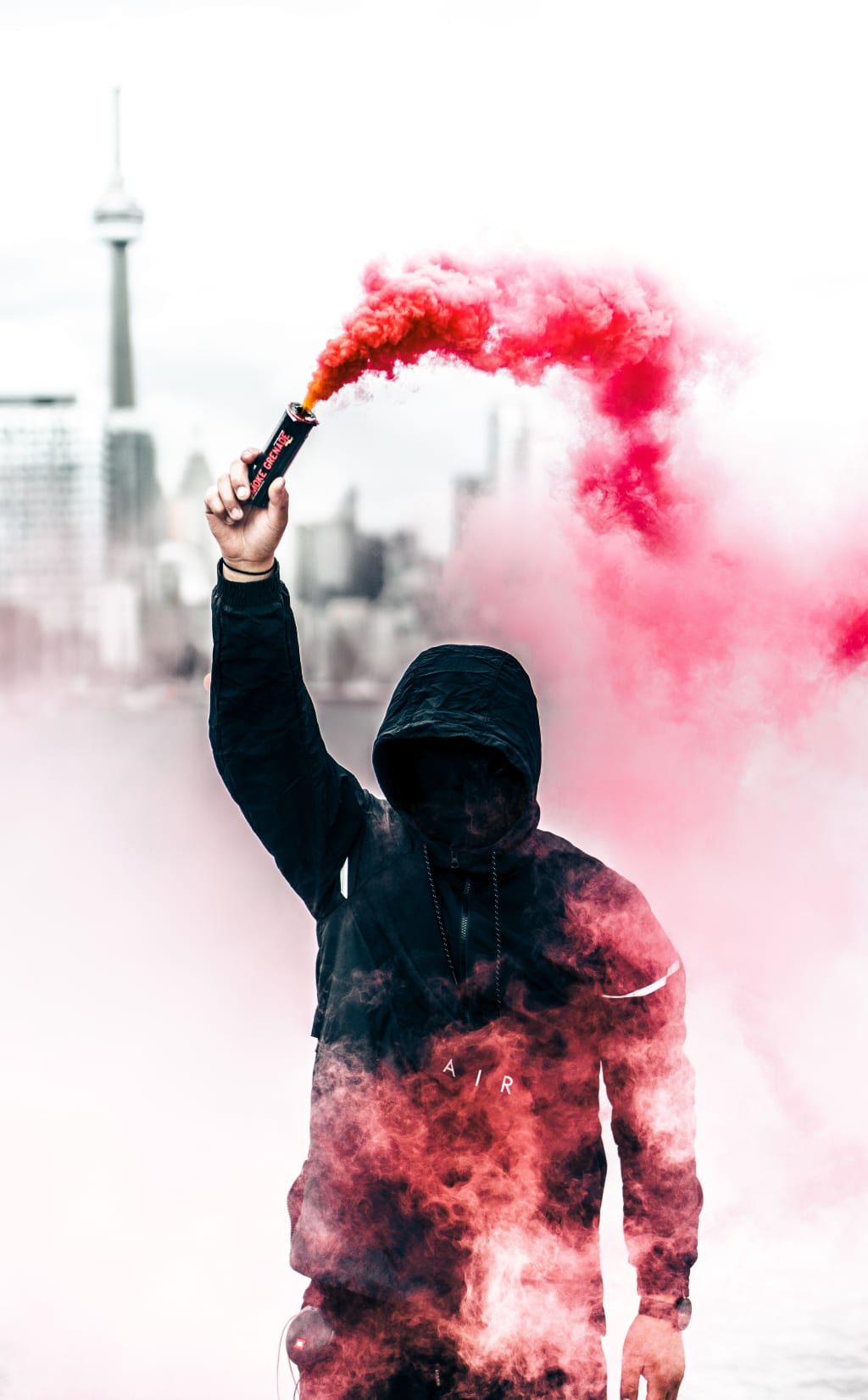
The favorite weapon of the revolutionaries was the bomb. These bombs, mostly hand-thrown, were similar to the later grenades or hand grenades. The Guangzhou revolutionaries used bombs to bomb Guangzhou General Fengshan and Li Zhun, the governor of the navy, and the Beijing revolutionaries bombed Liang Bi, the commander of the Praetorian Guard. This was true for assassinations, and also for revolutionary uprisings. In the Huanghuagang Uprising in 1911, the revolutionary vanguard charged with bombs in their hands, and Yu Peilun, the bomb king, had a basket of bombs hanging around his neck, throwing them as he charged, invincible. In the Xinhai Revolution, almost all revolutionary uprisings around the world could not do without bombs. So much so that the revolutionary army had a special kind of soldiers --- bomb squad, a cadre of daredevils, no other guys in their hands, only bombs.
The Qing Dynasty's munitions industry was an early maker of gunpowder, from black gunpowder to chestnut gunpowder to smokeless gunpowder. In the 1880s, it would have made mines and mines, but not grenades or hand grenades. Around the world, hand-thrown bombs were available at the beginning of the 20th century, but they were widely used on the battlefield only during World War I. Probably because the stability of hand-thrown bombs at that time was not good enough for soldiers to carry with them, and in case something happened, it was a very fatal blow to the group's survival. Because of this, in the early 20th century Chinese military reform, the new army, including the patrol battalions, was not and could not be equipped with hand-thrown bombs and, of course, would not be taught about their use. On the contrary, it was not easy for the revolutionaries to obtain guns, and it was easy for them to raise money, buy guns from Japan and other places, and transport them to China, not to mention the hardships and risks involved, and if not, they were seized with their guns. Therefore, the best choice is to try to make a bomb.
No matter what kind of bombs, it is not easy to try to make them. It was also very risky to build, carry and use. The revolutionaries made their own bombs, ranging from the less powerful black powder bombs to the more powerful silver nitrate bombs and even nitroglycerine bombs. The test bombs were the work of foreign students, who had learned chemical knowledge from abroad and whose only application, was to build bombs. They experimented in Japan and also back home. Later, after the Japanese tightened their control, most of the revolutionaries' bombs were made at home. Since Hong Kong's Kowloon area was not under the control of the Qing Dynasty or the British Hong Kong authorities, the revolutionaries set up bomb-making bases there. No wonder the revolutionaries in Guangzhou, whether assassinating or rioting, preferred to use bombs in ample supply. But elsewhere, such experiments tended to fail more often. Several people were wounded or even lost their lives trying to make bombs. On the eve of the Xinhai Wuchang Uprising, it was because the revolutionaries failed to test bombs in the British Concession in Hankow, injuring their own people and causing the discovery of the organ, and even the party's roster fell into the hands of the Qing government, almost ruining the event. In the revolutionary army of Chongqing Uprising of the Xinhai Revolution, the bomb squad had more than 20 people and only 6 bombs. Before the revolutionary army entered the city, the impatient city students made fake bombs to scare the governor of Chongqing and the governor of Ba County at the meeting, so that they surrendered power, and it really worked, the two obediently offered the Great Seal. However, the revolutionaries in Yangjiang, Guangdong were not so lucky. They also made fake bombs to scare the local patrol battalion to surrender. The patrol battalion was really scared and was hesitating when a daredevil threw out the fake bombs, which only gave off smoke. Now they knew it was a fake, and a burst of guns sent the revolutionaries away.
Since the Qing army was not equipped with bombs, and no one was willing to take the risk of trying to make them, they were often quite unfamiliar with them. Strangeness breeds fear, so the Qing army and officials, especially the Manchus, often harbored a special fear of bombs. In the legends, people often made the bombs look divine, saying that the bombs of the revolutionaries could not only blow up people but also the walls of the city. Even at that time, there was a legend that the revolutionaries had a kind of "suicide bomb", not the kind of explosives that extremist terrorists tie to their bodies nowadays, but that people swallowed the bombs in their stomachs, and when they found their targets, they pressed a button and the bombs exploded in unison with unparalleled power. Together with the bomb tactics of the revolutionaries, and indeed succeeded a few times, so the fear of bombs became a disease for some people. Originally, after Yuan Shikai agreed to the terms of the revolutionaries to force the Qing court to abdicate, the Manchu pro nobility group still intends to resist, but after Peng Jiazhen used the bomb to kill Liang Bi, all the Manchus are scared like birds and beasts, the large dynasty, even the court is no one. The empress dowager had to meekly surrender power. This fear of the bomb, until 1924 Feng Yuxiang forced Pu Yi out of the palace, the Manchu pro nobles still have. Originally, these pro nobles still wanted to stay, the officer in charge of the execution took out a grenade and fiddled with it, then these people were scared and walked obediently.






Comments
There are no comments for this story
Be the first to respond and start the conversation.